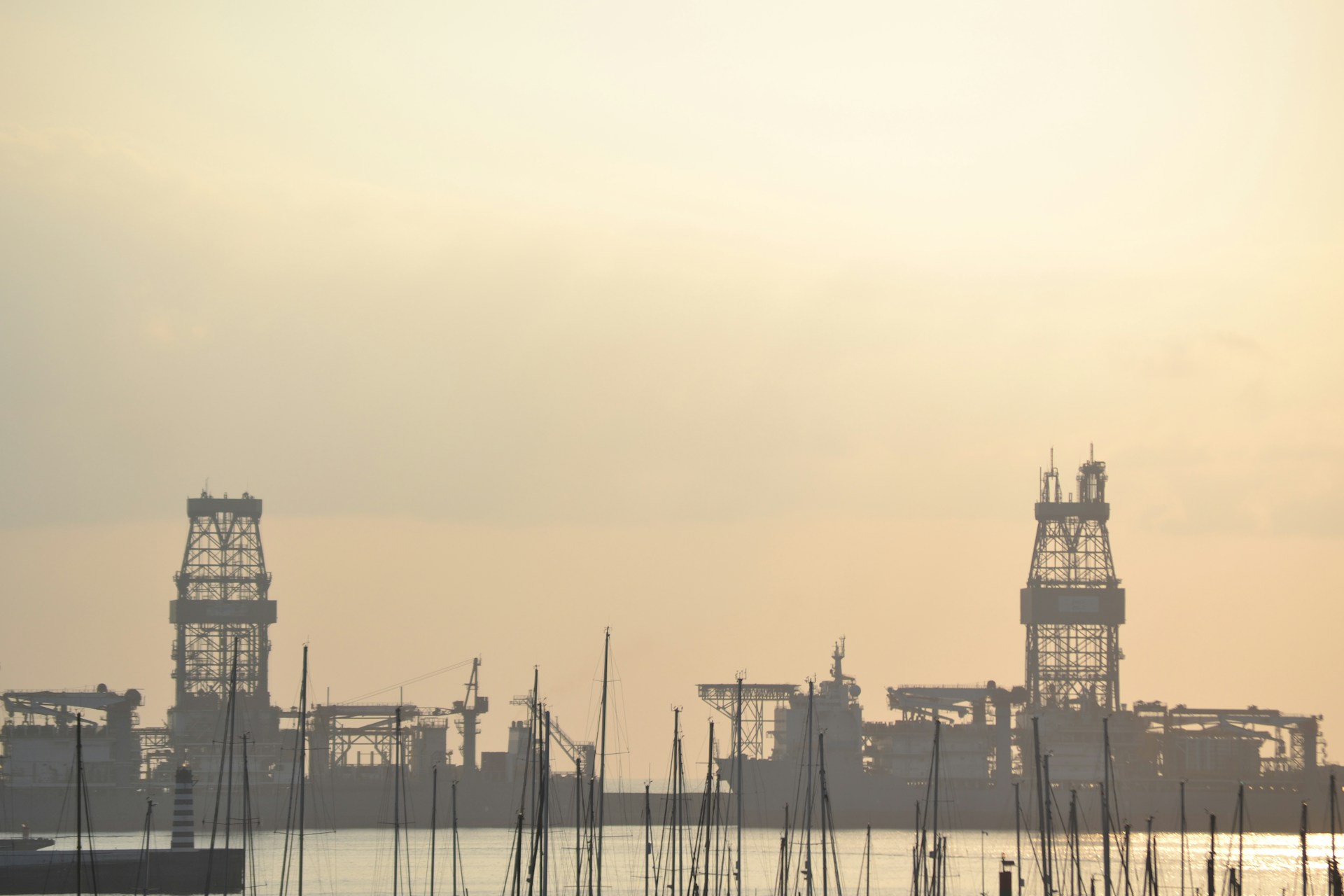Indonesia Energy Corporation Ltd. (IEC) is an Indonesian oil and gas company involved in the exploration and production of hydrocarbons. The company focuses on developing a portfolio of oil and gas assets that offer a combination of active production sites and promising exploration areas, aiming to capitalize on Indonesia’s rich natural resources.
Founded in 2014 by James J. Huang and Wirawan Jusuf, IEC is headquartered in Jakarta, Indonesia. The company’s strategy emphasizes balancing its efforts between producing blocks and exploration blocks with significant untapped potential. This approach positions IEC to steadily grow its production while exploring new opportunities that could yield substantial resources in the future.
Key Assets in the Portfolio
Indonesia Energy Corp. manages three key areas: the Kruh Block, the Citarum Block, and the Rangkas Area. Each of these blocks offers distinct opportunities for the company, combining current production with future growth potential.
1. Kruh Block
The Kruh Block is one of IEC’s primary producing assets. It is a medium-sized oil-producing field, and the company has focused on enhancing production efficiency at this site. The block offers a steady flow of oil, contributing to the company’s revenue while maintaining a manageable risk profile. IEC continues to invest in the Kruh Block to maximize output, and the field remains a cornerstone of its operations.
2. Citarum Block
The Citarum Block is an exploration asset with significant potential for gas production. Located in West Java, this block has already shown promising signs of containing large natural gas deposits. IEC is actively working on exploration activities in this area, aiming to unlock the gas reserves and develop it into a key asset in the company’s portfolio. The exploration in Citarum is part of IEC’s long-term growth strategy, as the company seeks to discover and develop new energy resources.
3. Rangkas Area
The Rangkas Area is another exploration block that IEC has under its control. This block holds significant potential for oil and gas resources, although it is still in the early stages of exploration. IEC plans to continue its exploratory efforts in the Rangkas Area with the goal of making new discoveries that could further enhance its asset base. If successful, the development of this area could provide additional revenue streams and further strengthen IEC’s position in Indonesia’s energy sector.
Strategic Vision and Growth Plans
Indonesia Energy Corp.’s growth strategy revolves around its dual focus on both production and exploration. By maintaining a mix of assets that provide immediate revenue from production, like the Kruh Block, while also investing in exploration efforts, such as in Citarum and Rangkas, the company seeks to balance risk and reward. This approach allows IEC to generate stable income while positioning itself for significant growth in the future.
The company’s exploration activities are particularly focused on identifying large, untapped reserves that could provide long-term value. The Citarum Block, with its potential for significant gas production, exemplifies this forward-looking strategy. If IEC succeeds in its exploration efforts, the company could play a major role in meeting Indonesia’s growing energy demand, particularly in the natural gas sector, which is expected to be a key component of the country’s energy mix in the coming years.
The Importance of Indonesia’s Energy Market
Indonesia’s energy market is one of the most dynamic in Southeast Asia, driven by a growing population and increasing industrialization. The country’s demand for energy, particularly oil and natural gas, continues to rise. This makes Indonesia a key player in the regional energy market, and companies like IEC are poised to benefit from this growing demand.
Indonesia is also strategically located, with access to some of the world’s busiest shipping lanes. This provides additional advantages for energy companies operating in the region, as they can easily export resources to global markets. For IEC, this strategic location enhances the value of its assets and positions the company as a competitive player in both the local and international energy markets.
Challenges and Opportunities
While Indonesia offers numerous opportunities for energy companies, there are also challenges that come with operating in the country. Regulatory requirements, environmental concerns, and the need for significant capital investment in exploration and production activities all present hurdles for companies like IEC. However, the company’s leadership, with experience in both the local and international energy markets, is well-equipped to navigate these challenges.
IEC’s ability to balance production with exploration is a key factor in its success. The company’s ongoing investments in its producing assets, like the Kruh Block, provide a steady income stream that can help fund further exploration efforts. Additionally, its focus on gas exploration in the Citarum Block aligns with Indonesia’s broader energy goals, which include increasing the use of natural gas to reduce the country’s reliance on coal and oil.
Future Outlook
Looking ahead, Indonesia Energy Corp. is positioned to continue growing both its production and exploration activities. The company’s balanced approach, combining steady production from existing fields with ambitious exploration efforts, provides a solid foundation for long-term success. As IEC continues to develop its assets, it could become a key player in Indonesia’s energy sector, helping to meet both domestic and international energy demand.
With a strategic focus on maximizing the value of its current assets while exploring new opportunities, IEC is well-positioned for future growth. The company’s leadership, with a deep understanding of the Indonesian energy market and strong experience in oil and gas exploration, provides confidence in IEC’s ability to navigate the challenges and capitalize on the opportunities that lie ahead.
In conclusion, Indonesia Energy Corp. is a dynamic and growing company with a clear vision for the future. Its portfolio of assets, which includes both producing fields and exploration blocks, offers a balanced approach to growth. As the company continues to invest in both production and exploration, it is well-placed to benefit from Indonesia’s growing energy demand and its strategic location in the global energy market
 Vivo’s 2026 Roadmap: A Dual 200MP Monster and a Surprise DJI Rival
Vivo’s 2026 Roadmap: A Dual 200MP Monster and a Surprise DJI Rival  Frankfurt’s Dax Flatlines in Pre-Holiday Lull as U.S. Data Offers Mixed Signals
Frankfurt’s Dax Flatlines in Pre-Holiday Lull as U.S. Data Offers Mixed Signals  Market Momentum for Specialized Funds: Latest Updates on JAAA and Aristotle Small Cap
Market Momentum for Specialized Funds: Latest Updates on JAAA and Aristotle Small Cap  Leaked Sony Xperia 10 VII Renders Reveal Major Design Overhaul
Leaked Sony Xperia 10 VII Renders Reveal Major Design Overhaul  Tesla Quietly Pulls Plug on Model S and Model X Sales in Germany and Beyond
Tesla Quietly Pulls Plug on Model S and Model X Sales in Germany and Beyond  Temu Targets Germany’s Grocery Market: A New Competitor for Aldi, Lidl, and More
Temu Targets Germany’s Grocery Market: A New Competitor for Aldi, Lidl, and More  NFC Gets a Major Upgrade: New Standard Expands Range Fourfold
NFC Gets a Major Upgrade: New Standard Expands Range Fourfold  American Coastal Insurance Corp.: Focused on Residential and Commercial Insurance Solutions
American Coastal Insurance Corp.: Focused on Residential and Commercial Insurance Solutions  HUAWEI FIT 4 Pro: A Smartwatch That Delivers Without Breaking the Bank
HUAWEI FIT 4 Pro: A Smartwatch That Delivers Without Breaking the Bank 